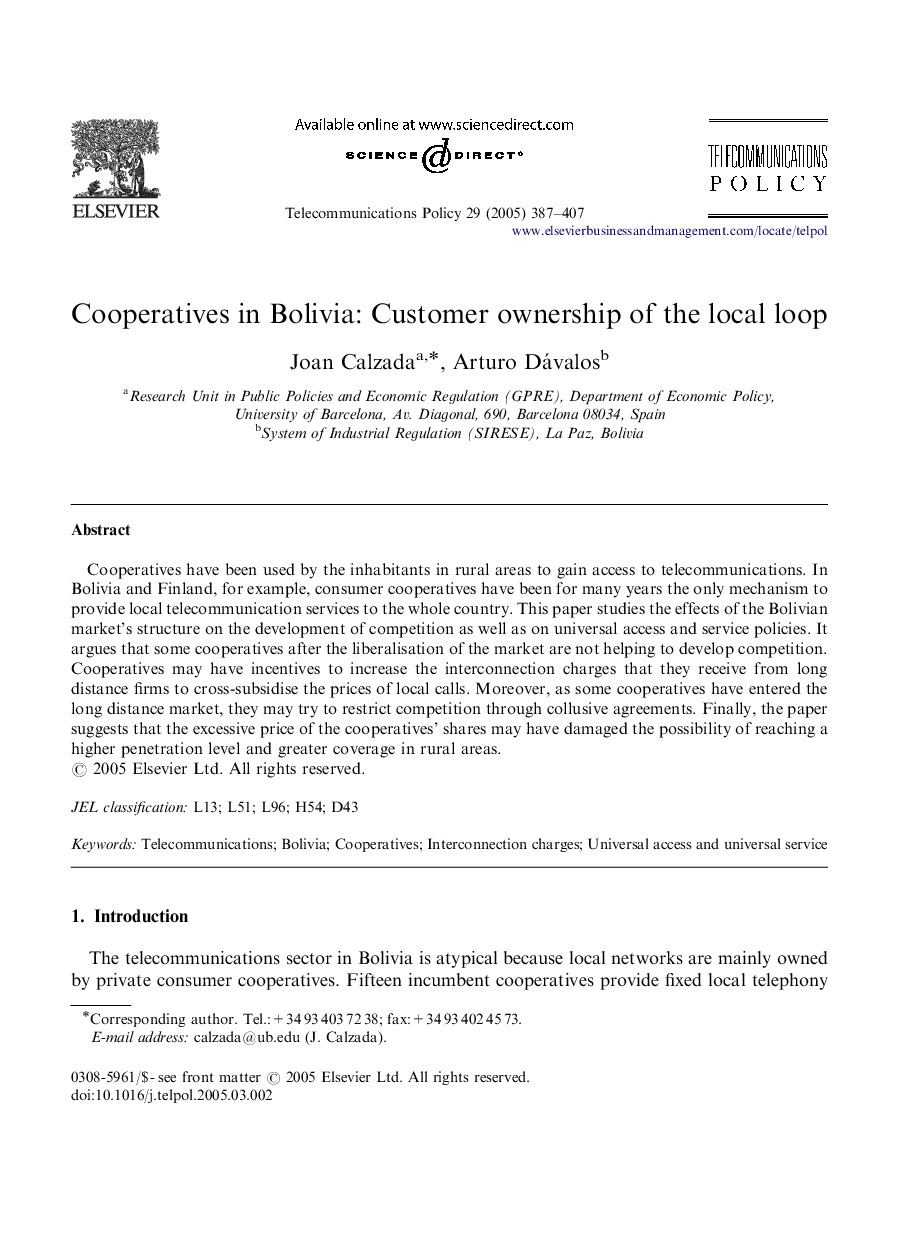| Article ID | Journal | Published Year | Pages | File Type |
|---|---|---|---|---|
| 9673211 | Telecommunications Policy | 2005 | 21 Pages |
Abstract
Cooperatives have been used by the inhabitants in rural areas to gain access to telecommunications. In Bolivia and Finland, for example, consumer cooperatives have been for many years the only mechanism to provide local telecommunication services to the whole country. This paper studies the effects of the Bolivian market's structure on the development of competition as well as on universal access and service policies. It argues that some cooperatives after the liberalisation of the market are not helping to develop competition. Cooperatives may have incentives to increase the interconnection charges that they receive from long distance firms to cross-subsidise the prices of local calls. Moreover, as some cooperatives have entered the long distance market, they may try to restrict competition through collusive agreements. Finally, the paper suggests that the excessive price of the cooperatives' shares may have damaged the possibility of reaching a higher penetration level and greater coverage in rural areas.
Related Topics
Physical Sciences and Engineering
Computer Science
Information Systems
Authors
Joan Calzada, Arturo Dávalos,
